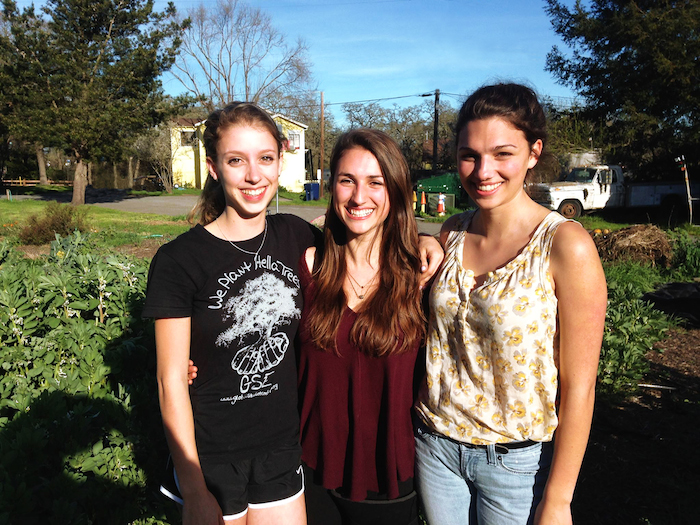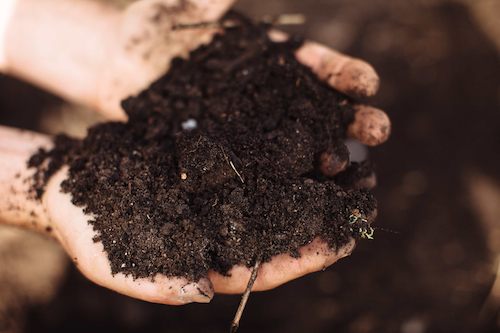Global Student Embassy teaches organic farming tenets in order to grow adults.
There’s a garden near downtown Sebastopol that grows more than vegetables and flowers. It also grows adults. That, at least, is among the aims of the Global Student Embassy (GSE), a Sebastopol nonprofit with a demonstration garden that serves students in Ecuador and Nicaragua as well as Northern California by immersing them in the tenets of eco-activism, reforestation, and organic farming as they find their place in the world.
Founded in 2008 by brothers Lucas and Jasper Oshun, Analy High School alum, GSE now serves seven local and 10 international high schools, reaching 2,000 students across the globe each year.
GSE’s communications and development manager Kate Crigler explains, “The garden was started six years ago by a group of Analy students who had identified the opportunity to fill a need in the community and also a chance for them to grow food and allow low-income community members to have access to organic food, which can sometimes be expensive. It’s been a huge process, a lot of soil-building had to go into this because there was so much clay here and a bunch of weeds that were really hard to get rid of.”
Students enrolled in GSE do an annual exchange program. Teenagers from Nicaragua and Ecuador come to California for three weeks each January; teens from California go to Nicaragua and Ecuador each spring break. They do projects on each other’s land, support reforestation efforts, and learn compost and permaculture techniques, among other activities.
On a warm winter afternoon, three of those students gathered on the half-acre plot that the city of Sebastopol allows GSE to use to practice farming. The trio of girls apologized for their small number; afterschool track training had just begun and the majority of their group was at school.
But Maya, Isi, and Nika offered more than enough eloquence and passion to give a visitor an idea of the depth of experience that GSE gives back to them.
“It’s so different from other organizations that might just go and help and leave and your time is over and you get college credit for it,” Isi says. “This is a project that’s really connected in the communities. It’s a collaboration, instead of us Americans going down to help them. They’re also coming up here to help us.”
Explaining how exchange students spend their days while in California, Maya says, “They don’t actually come to school with us, but our program coordinators plan out their whole trip. They go to Sonoma Compost, they tour the Permaculture Skill Center, they go see the waste treatment plant, they come work in this garden, they see our other projects. And when we get out of school, we meet up with them and do fun stuff.”
Maya, who received a grant from Community Foundation Sonoma County that allows her to have a salaried position at GSE as a deputy program coordinator, has found the human connection to be a profound experience.
“My dad was an organic farmer for eight years, so I grew up on farms and I always grew up knowing that you had to grow food to eat and the environment is what sustains us,” Maya says. “So, when I came into high school and I saw how other people were living and how a lot of people were really unhappy and how disconnected to the Earth they were, and I started taking classes and kind of learning more about how the world works and all the disconnects that there are, I became alarmed and really scared. Through this project, I feel like I’ve really learned advocacy and figuring out how to allow people to thrive by connecting through their relationships with the community and the Earth.”
Nika also comes from farm folk, but sees how working a small plot has large implications. “I grew up on a farm in Georgia, and it was like: we farm to get money,” she says. “We came out here and I wasn’t really that into farming and it was time to rebel against the parents, but I got into this program and now I understand why we were organic farmers, I get all of this. I’m really interested in public policy and land resources and how to get momentum going on a scale of the government, a political scale, that has to do with our resources, hopefully working internationally.”
The food that Sebastopol GSE students grow is donated to the families who live in the small trailer park surrounding their farm plot—many of whom now tend their own adjacent plots—as well as to the Ceres Project, the Redwood Empire Food Bank, and the Graton Day Labor Center.
It's not school. It goes beyond that. ~ Isi
“It was all started by students and it’s all run by students,” Crigler says. “I’m here to facilitate, but really, it’s the students who take responsibility and take the food to the food banks and are the ones who decide what they want to plant.”
Isi, who wants to be a physicist, says that she came to the program simply because she had a free Tuesday. That was a year ago. “I want to create new forms of energy that are renewable so that we’re not using fossil fuel so much,” she explains. “[GSE] helped me realize that. This is something that we need to work on, this is something we need to change. It’s had an effect.”
Nika, who hopes to work in public policy after college, says, “I feel like I’ve learned more from this garden than in my biology class. It changes you so much to learn something like this. Living in Sebastopol, I’d always heard to recycle and compost but to actually take part in it is a totally different experience. It really helps you understand the world better.”
Isi nods. “It’s not school,” she says. “It goes beyond that. It’s a job, a career, a lifestyle, and it’s creating people who are going to keep doing what they’re doing, helping out, working in a garden. It’s more like starting a revolution rather than just going down and helping out. It’s a different kind of eco-tourism, it’s a different kind of club.”


